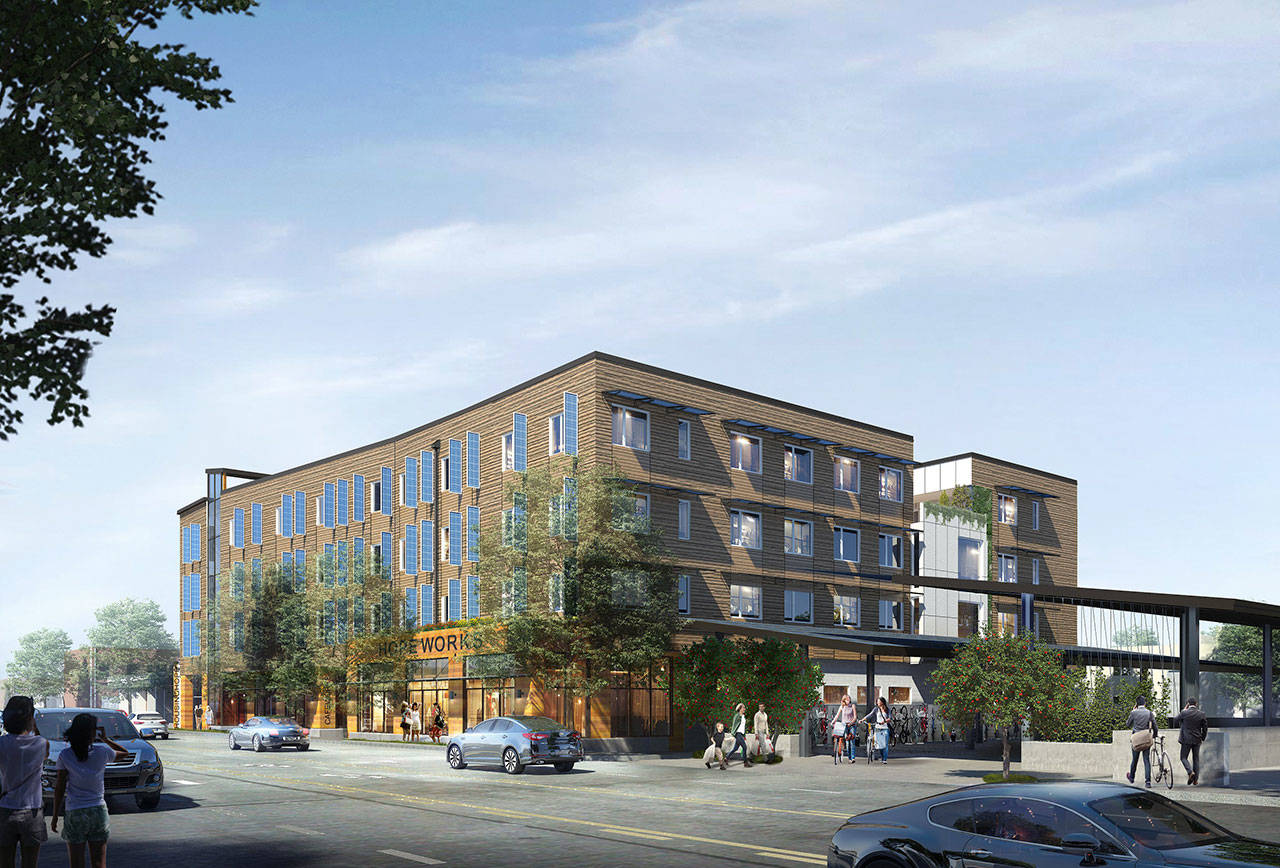By Fred Safstrom
For The Herald
For 30 years, Housing Hope has been tackling issues related to poverty and homelessness in Snohomish County.
That’s why we were interested to read Scott Allard’s June 8 commentary in The Herald regarding the increase in suburban poverty. Yes, it most certainly is, and those working on this issue in our community are very aware of that fact.
With this rise in poverty, coupled with the increase in the cost of housing, comes the rise in homelessness that we are seeing. Our solution? Work collaboratively. Focus effort on long-term, impactful interventions, and leverage the power of homes, jobs and children to stop poverty at its root.
Poverty has many causes that run deeper than demographic or employment trends. These include (but are certainly not limited to) early exposure to adverse childhood experiences, inadequate education, poor mental or physical health and substance addictions. These vulnerabilities stand as barriers to escaping poverty, and these vulnerabilities are what must be addressed before any lasting change can take place. This is the root. This is where we begin.
Housing Hope’s model is to focus our impact on homes, jobs, and children, and our entire process begins with housing. No long-term impacts can be accomplished without the stability of shelter. From emergency shelters to sweat-equity homeownership programs, Housing Hope gives families in extreme poverty a safe, secure, stable place to call home. Once a family is in our housing, we continue to equip them with self-sufficiency skills through our College of Hope program. We also help families engage in drug or alcohol treatment and mental health counseling, if necessary, and often support them in reunification with their children.
As a family gains greater stability, we turn our focus to jobs. Through job training, adult life-skills classes and internships, families work with our employment specialists to gain the building blocks for self-sufficiency. Residents often take part in one of our EduPloyment cohorts, internships at HopeWorks Social Enterprises, job training through a local community college, or an opportunity through our partnerships with Workforce Snohomish and Worksource.
Stable housing and job skills are the foundation for helping families escape poverty, but breaking the cycle of poverty is best done through early intervention. By providing high-quality child development services at Tomorrow’s Hope Child Development Center and parent education through the College of Hope, we are helping the youngest and most vulnerable members of our community to have a brighter future.
Homes. Jobs. Children. This is our strategy, and the results speak for themselves. Last year, 1,800 people had safe, stable housing or participated in a Housing Hope program; 777 students participated in our College of Hope program; 175 people worked with our education and employment specialists on their career goals. And 184 children received quality trauma-informed child development services at Tomorrow’s Hope Child Development Center.
What’s next? Currently, we’re excited about HopeWorks Station Phase II, under construction now on Broadway in Everett. Once complete, this beautiful new building will be a living example of our commitment to homes, jobs and children. HopeWorks Station Phase II will include 65 affordable apartments, including 49 dedicated to previously homeless households. The ground floor of the building will include a culinary and food service training center, including a full-service cafe, commercial production kitchen and a demonstration kitchen. In this space, residents will learn job skills that will get them on a pathway out of poverty.
Looking to the future, we know that our community is facing many challenges related to poverty and homelessness. But as our name suggests, we have hope. We know that by working collaboratively, like we have for 30 years, we can overcome these challenges. By leveraging the power of homes, jobs and children, we can stop poverty at its root.
Fred Safstrom is the CEO of Housing Hope.
Talk to us
> Give us your news tips.
> Send us a letter to the editor.
> More Herald contact information.

























